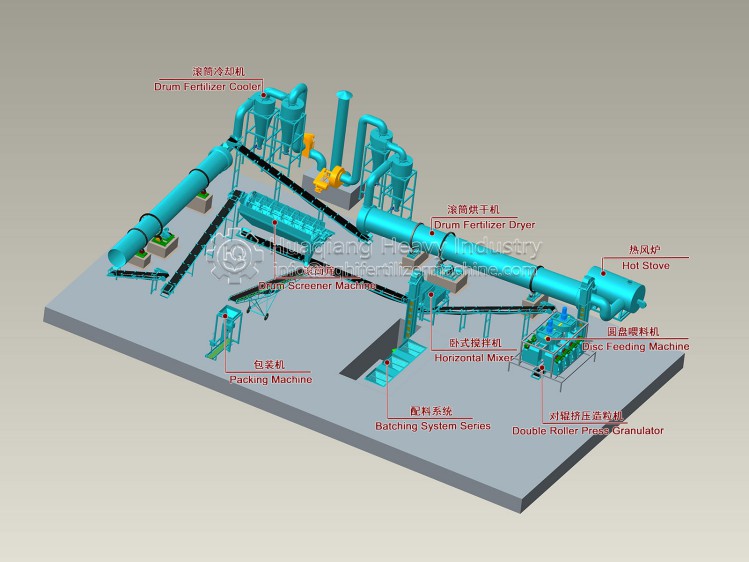When some compound fertilizer equipment production lines are processed by rotary drum granulator, they can dissolve the fertilizer into a certain proportion, but if the energy exceeds a certain amount, it will produce salt analysis and precipitate another substance.
Amino acids and zinc sulfate dissolve well in water, but when they are together, Zinc Sulfate Precipitates amino acids. The pH value of solution, part of the supply, metal salt dissolved in acid will produce precipitation and dissolve in alkaline medium, while some substances such as humic acid will form precipitation and dissolve in acid solution. Amino acids and humic acids can be analyzed by salt analysis, zinc, copper, iron, manganese and salt analysis. Therefore, it is more important to choose suitable raw materials for fertilizer production.

Fertilizer granulator granulation should consider whether the substances are compatible. Some substances cannot be mixed in the precipitation reaction, and precipitation occurs when they are mixed into water, such as zinc, copper, iron and manganese plasma. In the case of phosphate, borax will precipitate, the precipitate is insoluble in water, and the phosphate precipitates molybdate ammonia water, and these commodities cannot be produced at the same time. They not only produce precipitation, but also lose their fertilizer efficiency.
Raw materials are insoluble in water, so the proportion of fertilizer is blindly increased. At room temperature, the solubility of borax and boric acid in water is 30 kg / T, and most of them will precipitate. If several kinds of fertilizers are soluble in water, there is also a great demand. For example, zinc sulfate is soluble in water, potassium sulfate is soluble in water, and two kinds of raw materials are soluble in water, which can produce potassium sulfate crystals.